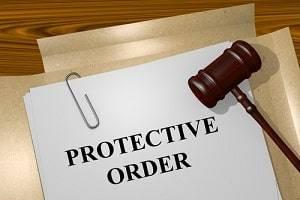What Is Required to Obtain an Order of Protection in Illinois?
Domestic violence affects the lives of millions of individuals in Illinois and across the country. If you, your child, or a disabled adult who you know have been abused or harassed, you may be interested in getting an order of protection. Called restraining orders in other states, an Illinois order of protection is a legal court order that prohibits someone from further harassment and abuse. It may require the abuser, called the respondent, from coming to your home, workplace, or school or contacting you. It may even require the respondent to move out of your shared home or surrender any firearms he or she owns.
Emergency Orders of Protection May Be Granted Based on Your Testimony
In Illinois, there are three main types of protection orders: emergency orders of protection, interim orders of protection, and plenary orders of protection. Emergency orders of protection (EOP) are often issued on the same day that they are requested. In most legal actions, the respondent must be served with notice of the action. However, an EOP may be granted “per se,” which means that the respondent is not present or notified of the court order. The EOP may be granted on your testimony alone.
To qualify for an emergency order of protection, the following criteria must be met:
-
The respondent is a former or current family or household member
-
You (or the person on whose behalf you are requesting protection) were abused by the petitioner
An EOP lasts up to 21 days. At the time that an EOP is issued, a hearing date is set for a plenary order of protection. A plenary order of protection may last for up to two years. If the petitioner requires protection between the EOP and the plenary order of protection, an interim order of protection may be granted.
Types of Abuse That Qualify Someone for a Protection Order
Abuse does not only refer to physical abuse such as hitting or shoving. According to Illinois law, abuse also includes actions such as:
-
Repeatedly following the victim, repeatedly calling or otherwise contacting the victim, or otherwise harassing the victim
-
Threatening physical force
-
Threatening the victim with a weapon
-
Forcing the victim to have sexual relations
-
Continually remaining outside the victim’s home, workplace, or school
-
Concealing the victim’s minor child or threatening to take the victim’s child away
-
Exposing a minor child or disabled individual to witness physical abuse
Contact an Arlington Heights, IL Domestic Violence Lawyer
If you have been a victim of domestic violence, an order of protection can protect you from further harassment or abuse. To learn more or for help petitioning the court for an order of protection, contact an experienced and compassionate Arlington Heights, IL family law attorney from A. Traub & Associates. Call our office today at 847-749-4182 to schedule a personalized consultation.
Source:
https://www.ilga.gov/legislation/ilcs/ilcs5.asp?ActID=2100


















